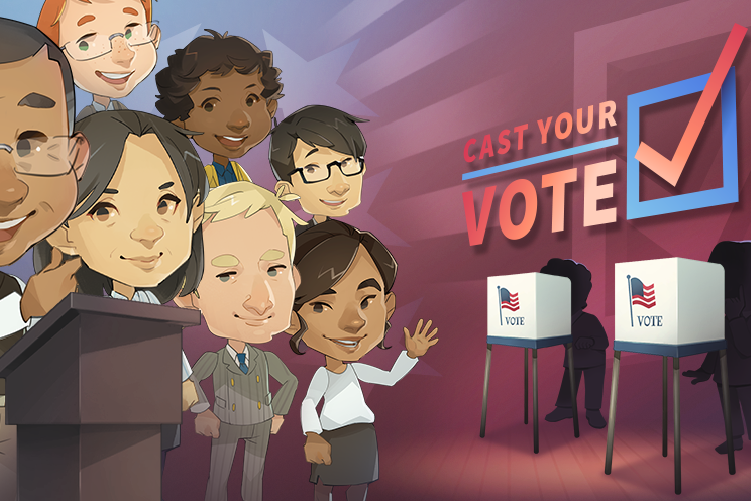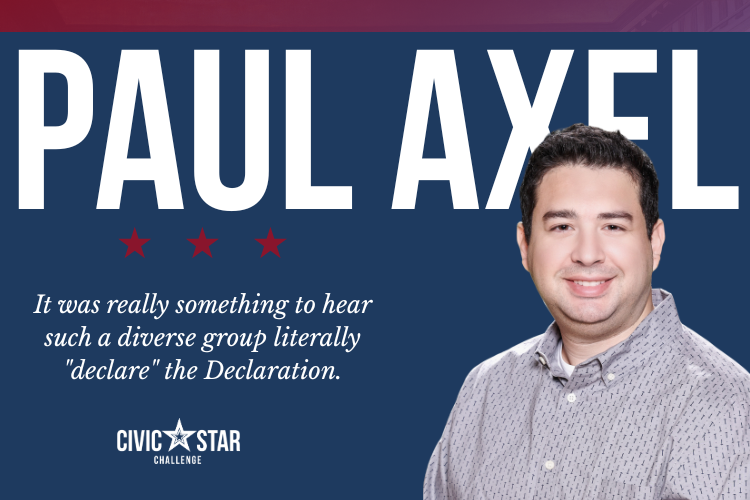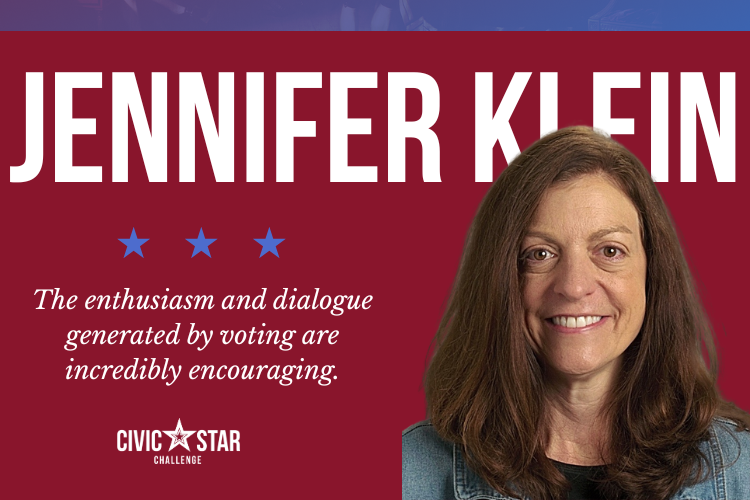As a middle school civics teacher, not only do I need to teach the importance of voting like my high school colleagues, but I have to do it four or more years before the students will even be eligible to register. This makes holding their interest more difficult. I have also found that while students understand the importance of making informed decisions, they do not know how to find information about the candidates in order to make those decisions. The solution? I have students take part in the actual research, comparison, and election processes through an in-depth mock election project that kicks off with the iCivics game, Cast Your Vote.
Cast Your Vote is one of the more challenging games offered as part of the We the People program because of the amount of analysis required of students regarding candidates, including their stances on issues and voting history. Students must also identify red flags related to misinformation or bias.
In the game, the player has four simulated weeks to attend town halls, research candidates through digital news sources and campaign literature, and decide their own personal stance on issues to find the candidate who best matches. At the end of the game, students not only get a score based on voting for a candidate who best matches their decided-upon stance on issues but also on the amount of facts and red flags identified.
Once we’ve played the game in class, students are ready to try out the same skills with the real upcoming elections. I assign one race to each period, and each student gets a graphic organizer that documents the candidates’ stances or plans for at least five issues affecting our government.
After a few days of at-home research and a quick grade based on completed research, students are then put in pairs or small groups to choose one of the issues and create an informational poster contrasting the candidates on that issue. Our hallway quickly fills with research-based, unbiased comparisons using the candidates’ own stances and comments. The staff and visiting adults in the building love to comment about how helpful this research is for their own voting preparation.
Finally, it’s time for our mock election. After students have had a few days to look over other classmates’ work and see a sample ballot, I publish their mock election ballot taken from screenshots of the real sample ballots from my local election office. Students are warned to follow the directions of the ballot just like at a real polling location and, during a period, are given privacy in booths to take their ballot and vote. I have even begun buying stickers for the students who choose to participate, which is almost 100%.
During the project, the students comment that the amount of work often surprises them, and they now not only understand the importance of voting more but feel like they are better prepared than many of the adults in their households with whom they talk about the project a lot.

Written by Erin Merrill
Erin Merrill is an award-winning educator in her 19th year of teaching middle school social studies and her 10th year as Department Chair and Middle School lead at Pennington Traditional School in Prince William County, VA. She is passionate about making her students aware and engaged in the current events around them, and thankfully, Civics provides the perfect platform for this.
Through the iCivics Educator Network, the perspectives of teachers across the country contribute to the public conversation about civic education in the United States. Each contributor represents their own opinion. We welcome this diversity of perspectives.




